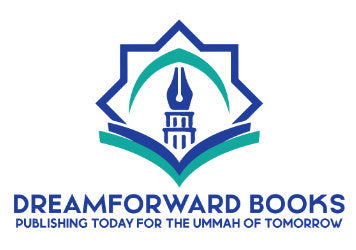Part II - 3 Keys to Improving Students’ Literacy Outcomes
Share
![]()
By DFB Staff Writer
As-salamu alaikum,
In part one of this series, 3 Keys to Improving Students’ Literacy Outcomes, we saw that the first key to improving children’s reading ability is to return to the Quran and Sunnah and to be vigilant about following the Book of Allaah and the Sunnah of His Messenger ﷺ. Here in part 2, we’ll discuss the second key: Increasing Your Child's or Students’ Knowledge of Various Topics.
Key # 2: Increase your students’ knowledge of various topics (i.e., Islaamic History, World History, etc.).
No doubt, Islaam is the religion of knowledge, walhamdulillaah. Rare is the Muslim who doesn’t know that the first ayaat Allaah revealed to the Prophet ﷺ were enjoining reading as the means and way to acquire knowledge (i.e., surah al-Alaq 96: 1-5). And there are numerous ayaat in the Quran where Allaah highlights the status and obligation to acquire knowledge.
“Allaah bears witness that Lâ ilâha illa Huwa (none has the right to be worshipped but He), and the angels, and those having knowledge (also give this witness); (He always) maintains His creation in Justice. Lâ ilâha illa Huwa (none has the right to be worshipped but He), the All-Mighty, the All-Wise.” {Ali’Imraan: 18}
“It is only those who have knowledge among His slaves that fear Allaah. Verily, Allaah is All-Mighty, Oft-Forgiving.” {Faatir 35:28}
“and say: ‘My Lord! Increase me in knowledge’” {Ta-Ha 20:114}
“Say: ‘Are those who know equal to those who know not?’ It is only men of understanding who will remember (i.e., get a lesson from Allaah’s Signs and Verses)” {al-Zumar 39:9}
And the Prophet ﷺ said: “Whoever follows a path in the pursuit of knowledge, Allaah will make a path to Paradise easy for him.” (Narrated by al-Bukhaari, Kitaab al-‘Ilm, 10)
So we must give our children the knowledge they need of various halal subjects, first and foremost of which is knowledge of the deen. In doing so, we will give them one of the most important tools they need to experience successful life and literacy outcomes inshaa’Allaah. And the importance and stress on literacy “skills” needs to be balanced and tempered by the giving and teaching of knowledge because “no matter how well trained students become in main-idea finding, the student with the smaller relevant vocabulary and knowledge is the one who will fare worse on the test” (Hirsch, Jr., 2016, p. 23). Overstressing and over-emphasising acquisition of literacy "skills" does not serve children’s literacy interests. While these skills (decoding, fluency, phonemic awareness, letter-sound knowledge, word encoding, etc.) are important, they will not serve children if children lack critical, relevant subject knowledge. “Once decoding has been mastered and fluency attained, relevant knowledge becomes the chief component of reading skill” (Hirsch, Jr., 2016, p. 23). Consider this scenario:
A child is given a passage about how submarines are used in marine biology research. If the child has little or no subject knowledge about submarines, when the child is asked comprehension questions, they become lost. If the child is asked to find the main idea of the passage, they flounder. If there are questions about the ballast tank, the nuclear reactor (don’t panic, the nuclear reactor in a submarine is just a portable source of nuclear energy. A submarine uses the steam the nuclear reactor generates to “drive the turbines that provide the submarine’s actual power” [Submarine Power, n.d.]), the rudders, or the driving plan, how will a child answer these comprehension questions correctly? The child must first have subject knowledge about submarines (and marine biology). Only then will they be exposed to and be familiar with the relevant vocabulary related to this topic. And only then, with the help of Allaah, will they be able to answer comprehension questions correctly. “We know that the skill of reading comprehension in any given case depends more on relevant knowledge {emphasis ours} than on formal strategies” (Hirsch, Jr., 2016, p. 21). If we want to help our struggling readers (and all of our readers), our focus needs to be directed at giving students knowledge – specific knowledge – in many and varied halal subjects. Doing so is a critical key in helping improve students’ literacy outcomes, especially the literacy outcomes of struggling readers.
Next month inshaa’Allaah, in Part 3 – the final part of this series – we’ll discuss the last of the 3 keys to help improve students literacy outcomes.
